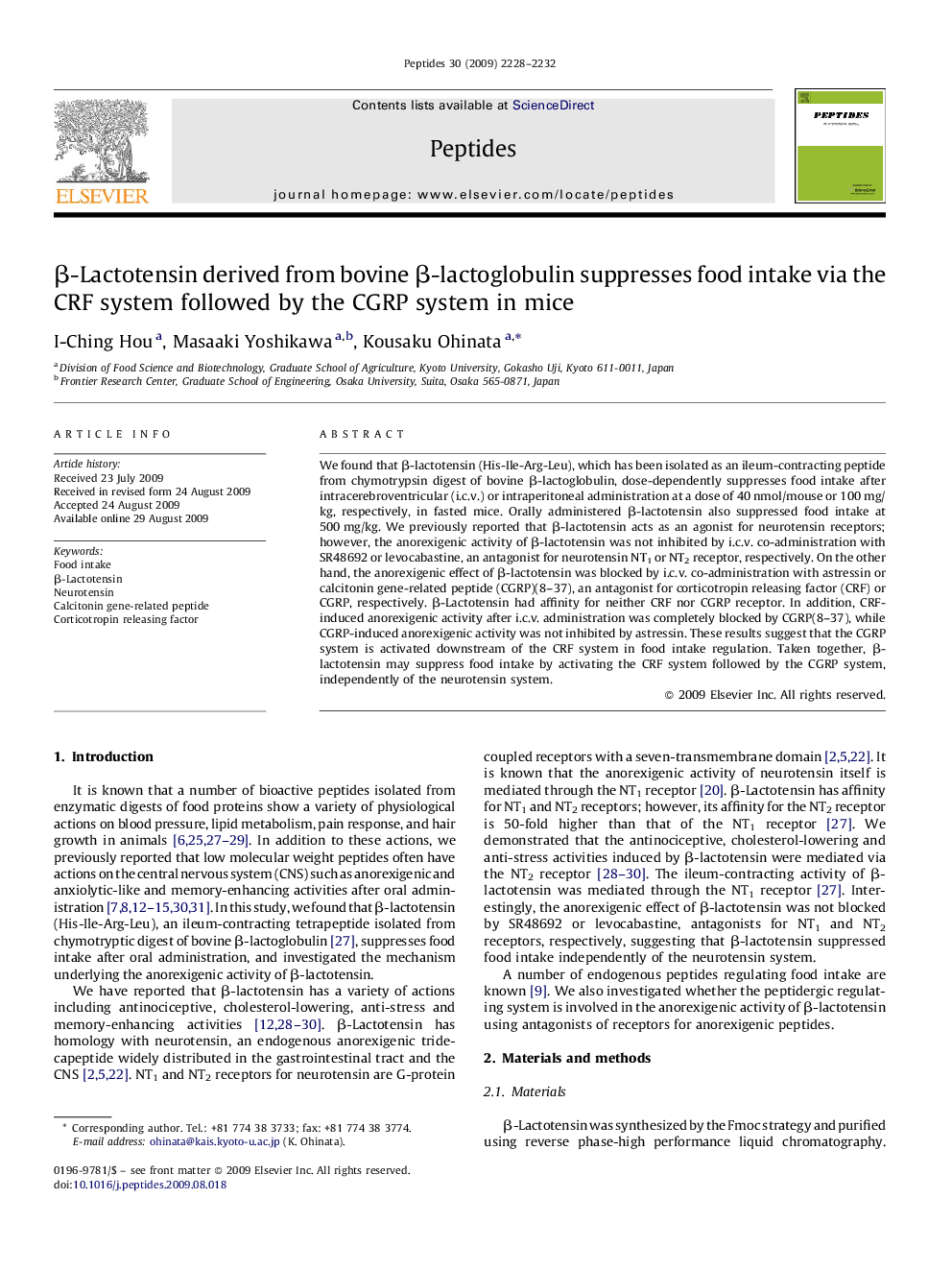| Article ID | Journal | Published Year | Pages | File Type |
|---|---|---|---|---|
| 2007046 | Peptides | 2009 | 5 Pages |
We found that β-lactotensin (His-Ile-Arg-Leu), which has been isolated as an ileum-contracting peptide from chymotrypsin digest of bovine β-lactoglobulin, dose-dependently suppresses food intake after intracerebroventricular (i.c.v.) or intraperitoneal administration at a dose of 40 nmol/mouse or 100 mg/kg, respectively, in fasted mice. Orally administered β-lactotensin also suppressed food intake at 500 mg/kg. We previously reported that β-lactotensin acts as an agonist for neurotensin receptors; however, the anorexigenic activity of β-lactotensin was not inhibited by i.c.v. co-administration with SR48692 or levocabastine, an antagonist for neurotensin NT1 or NT2 receptor, respectively. On the other hand, the anorexigenic effect of β-lactotensin was blocked by i.c.v. co-administration with astressin or calcitonin gene-related peptide (CGRP)(8–37), an antagonist for corticotropin releasing factor (CRF) or CGRP, respectively. β-Lactotensin had affinity for neither CRF nor CGRP receptor. In addition, CRF-induced anorexigenic activity after i.c.v. administration was completely blocked by CGRP(8–37), while CGRP-induced anorexigenic activity was not inhibited by astressin. These results suggest that the CGRP system is activated downstream of the CRF system in food intake regulation. Taken together, β-lactotensin may suppress food intake by activating the CRF system followed by the CGRP system, independently of the neurotensin system.
